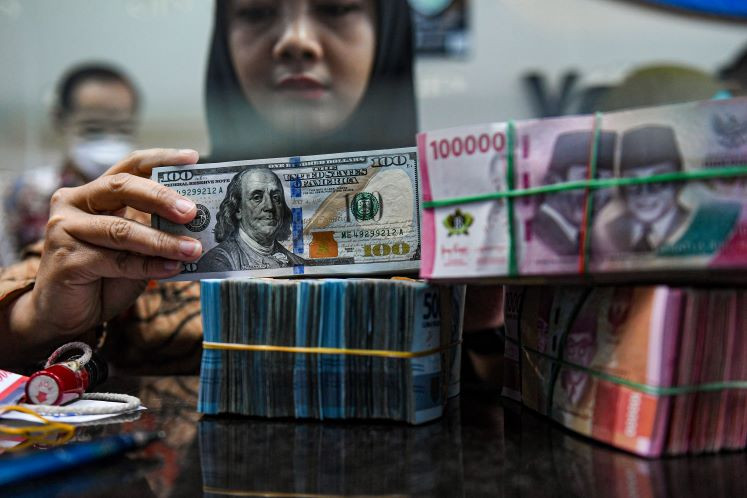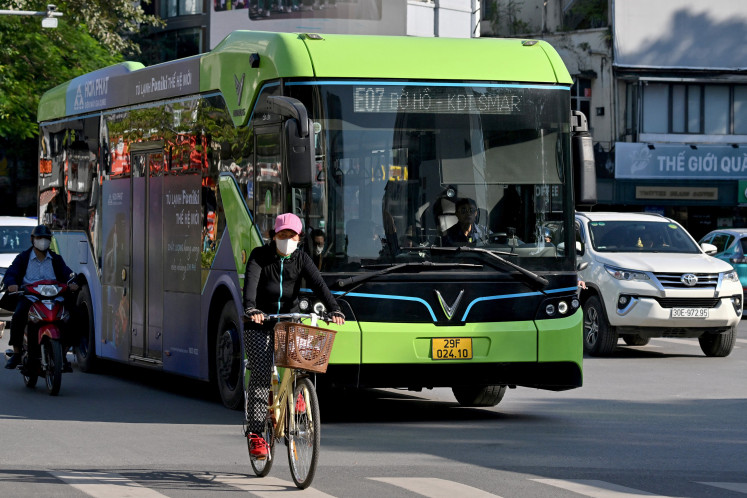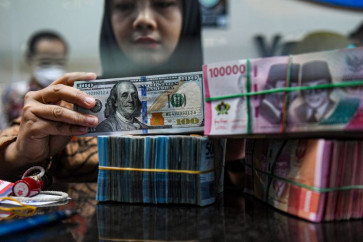Popular Reads
Top Results
Can't find what you're looking for?
View all search resultsPopular Reads
Top Results
Can't find what you're looking for?
View all search resultsFrom transition to transformation: The era of optimism
With the new national leadership stepping into office, now is the perfect moment to drive accelerated, even transformative, progress toward achieving higher, more inclusive, and quality economic growth.
Change text size
Gift Premium Articles
to Anyone
I
n less than two weeks, we will be leaving 2024 and soon entering a new year. Many dynamics have occurred throughout this year. At the beginning of the year, we elected a new national leader, and by the end of the year, new regional leaders were elected throughout Indonesia. Although this massive succession process was carried out simultaneously for the first time in Indonesia's history, the power transition has proceeded safely and smoothly, providing optimism for the future.
The confidence is confirmed by the Consumer Confidence Index (CCI) surveyed by Bank Indonesia. The recent CCI highlights growing consumer optimism in November 2024. It reached 125.9, the highest level since May 2024, signaling a renewed sense of confidence among consumers. This surge is closely linked to optimism surrounding the new government, which was inaugurated at the end of October 2024. The upward trend is particularly evident in the Consumer Expectations Index, a key component of the CCI, which climbed to 138.3, marking its highest level since July 2022. These figures suggest heightened consumer expectations for economic stability and growth under the new administration.
Looking back at the last decade, Indonesia has achieved remarkable economic development, maintaining resilience and growth even amid global economic slowdowns spurred by ongoing geopolitical conflicts. Indonesia’s economy demonstrated its strength by weathering the severe impacts of the COVID-19 pandemic.
From 2013 to 2023, the country averaged a 4.3 percent growth rate, placing it third among the six largest ASEAN economies, following Vietnam (6 percent) and the Philippines (5 percent). Despite a temporary contraction due to the pandemic, subsequent years witnessed a robust recovery marked by positive trends. This progress can be attributed to comprehensive economic reforms, prudent fiscal management and substantial infrastructure investments, all of which have become key drivers of Indonesia’s economic resilience and growth.
However, stability is not enough, accelerated growth is required.
To realize the vision of Golden Indonesia 2045, the current growth rate of around 5 percent is insufficient. A closer look reveals that Indonesia’s GNI per capita PPP in 2023, reflecting the average income of Indonesians, has increased by only 1.57 times compared with a decade earlier in 2013. In contrast, among the six major ASEAN countries, Vietnam and the Philippines recorded the highest increases, with their GNI per capita PPP rising by 2.2 and 1.64 times, respectively. This higher growth aligns with these countries’ consistently strong economic performance, surpassing other ASEAN nations in recent years.
Meanwhile, the economy has yet to return to its historical trajectory. The COVID-19 pandemic placed immense pressure on the global economy, impacting Indonesia as well. Household consumption, Indonesia’s main economic driver, dropped sharply below pre-pandemic levels in 2020 and 2021. With the easing of the pandemic and the restoration of mobility in 2022, consumption rebounded above pre-pandemic levels. However, post-pandemic household consumption remains on a slower path, still falling short of its historical trend



















